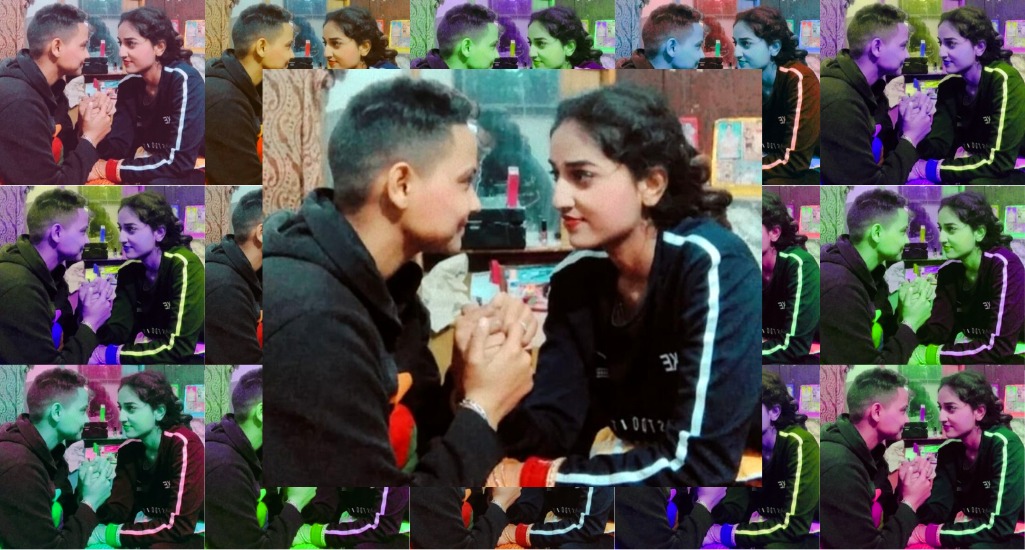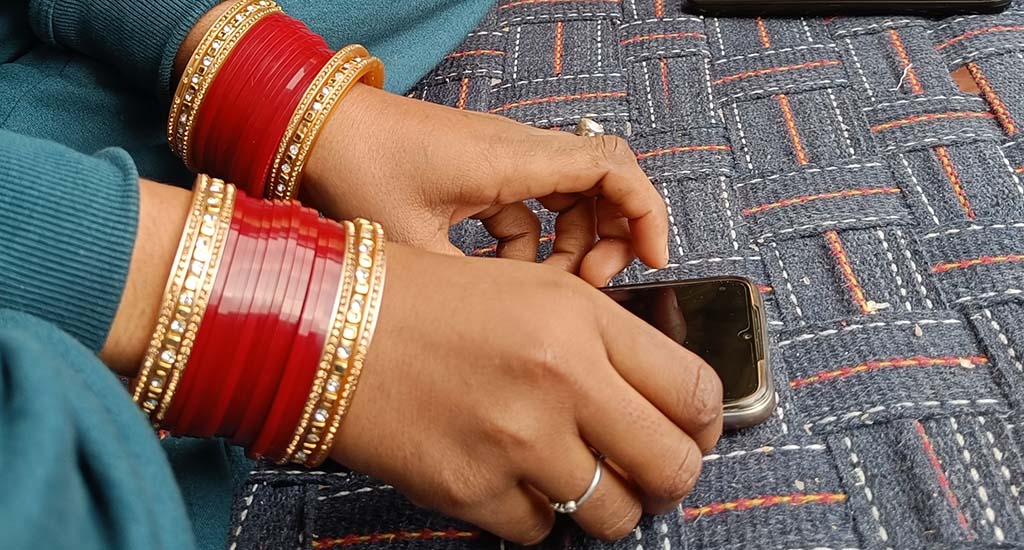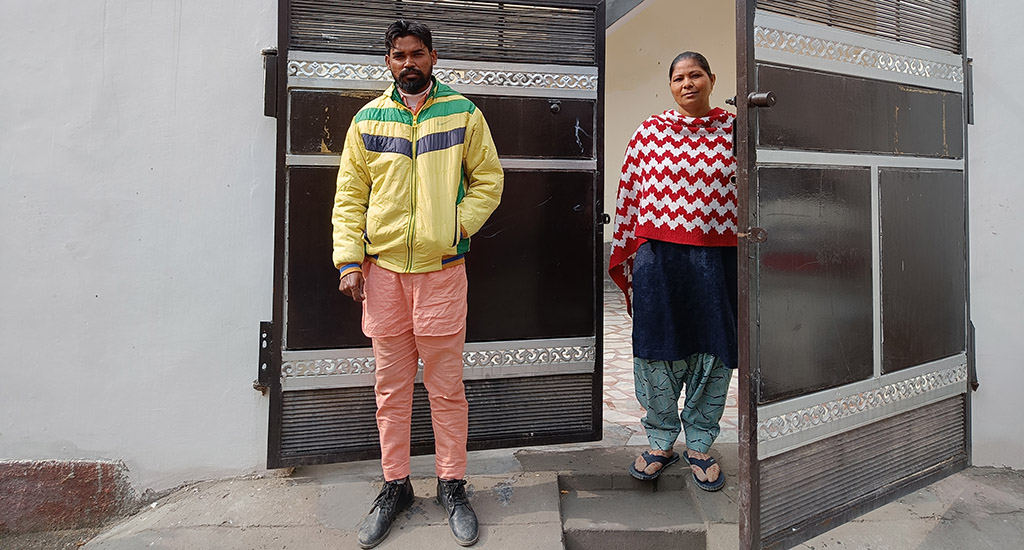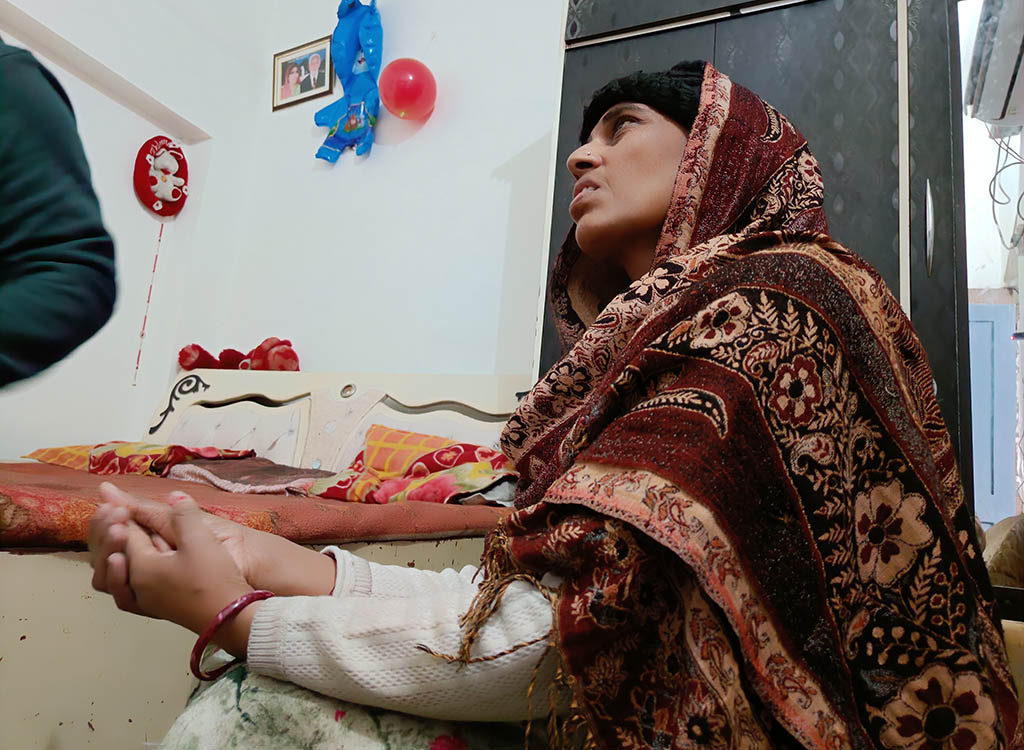
Forbidden love in rural Punjab
Their love is strong, but life is a struggle for this lesbian couple from rural Punjab. Without a law that recognises same-sex marriage, like many they struggle to rent homes and often hide their identity.

Their love is strong, but life is a struggle for this lesbian couple from rural Punjab. Without a law that recognises same-sex marriage, like many they struggle to rent homes and often hide their identity.
It was love at first sight for Lovely Rana and B Jaspreet when they first met outside their coaching centre when they were in class VIII. They kept meeting and spending time together until they confessed their love for each other.
This was not just the start of their love story but also a rift between Rana and her mother.
“My mother asked me to get out of the house if I wanted to live with a girl. Because it was wrong, according to her. So I had no other option but to leave,” Rana said.
Those in a same-sex relationship in the cities may find acceptance to some extent. But not those like Rana and Jaspreet living in towns and villages. Especially, when there is no law that permits same-sex marriage.
19-year-old Rana studied till class IX, like her partner, 21-year-old Jaspreet.

Rana prefers dressing up like a newly married Punjabi woman with long hair, red bangles and bright make-up. Jaspreet has short hair and wears ‘manly clothes’ as Rana calls them.
Working at a petrol pump in the Bathinda district, Jaspreet earns Rs 10,000 per month to make ends meet.
“I have to live and look like a male to live peacefully in society,” said Jaspreet.
Otherwise they both fear facing criticism and may even be thrown out of their rented home.
“Most of our neighbours and people at Jaspreet’s work don’t even know that she is not a man,” Rana whispered.
Since the day Rana left home to be with Jaspreet, she has not heard from her mother, though she is in touch with her elder sisters.
Rana lost her father six years ago to tuberculosis, when he was just 42.

For his death anniversary pooja in June this year her mother invited Rana’s sisters but not Rana.
“I spoke to my sisters. I tried to speak to my mother on the phone, but she did not answer my calls. She didn’t let me step inside the house when I tried to visit them on papa’s barsi (death anniversary),” she said.
When Rana left home, Jaspreet’s parents gave the young woman shelter.
“Jaspreet’s parents were very welcoming and warm. They made me feel like I’m their own daughter. In fact, they are an example of how same-sex couples’ parents should be. A pillar of strength to their children,” said Rana.
Rana admits to being very scared when she left home, but not anymore as Jaspreet’s parents have been very supportive.
“Homosexual relationships are not unheard of in India, but they generally exist in the country’s larger cities where people can be more open about their sexuality,” says Anuradha Parasar of National Law University in her paper about homosexuality in India.

32-year-old Lucknow-based dentist Rashi Singh did not come out to her friends or family until the 2018 decriminalisation ruling.
“Only after that I had the guts to tell them about my homosexuality. My parents still hope that I will realise ‘my mistake’ one day and settle down with a boy. They have not abandoned me, thankfully,” Singh told Village Square.
Singh believes things are easier for people in cities than those in small towns.
Consensual same-sex relationship remains criminalised in at least 67 countries and territories worldwide, according to UNAIDS, an organisation working to end AIDS.
In 2018 India’s Supreme Court made a historic ruling that gay sex is no longer a criminal offence in the country.
India is known as a land that celebrates same-sex relationship and gender fluidity in its literature, art, mythology and sculptures. Though there are at least 2.5 million gays and lesbians in India, according to government figures, submitted to the Supreme Court, many Indians fail to empathise with the LGBTQ people.
According to Mood of the Nation, an opinion poll of 2019, 62% Indians do not accept same-sex marriages, which is still not legal in India.
Rana and Jaspreet live close to Jaspreet’s parents.

“We live in a rented place paying Rs 1,500 per month. It was a challenge for us to find a place, because the landlords we approached always asked for a marriage certificate. We had no clue what to do. Thankfully this particular landowner gave the place without asking for a certificate,” said the duo.
After her father’s death Rana had to quit her studies because of a financial crisis in the family. Now she wants to go back to school to be able to earn a better income and help her partner. But to do so she needs paperwork that only her mother has.
“I want to complete my class X at the earliest. For that I need my birth certificate and Aadhaar card for the admission. But my mother isn’t giving them to me. She is not even ready to talk to me,” Rana said with a sigh.
It is another example of how the system is working against her because of her personal choice in love.
“I wish my dad were here today. To see how happy I am. He’s the only one who could have convinced my mother to accept me… accept us. My life would have been more stress-free and peaceful if my father were still alive.”
The lead image at the top of this page is a photo montage showing Lovely Rana (Photo by Jigyasa Mishra)
Jigyasa Mishra is a journalist who writes primarily about women’s issues and public health, from north India.